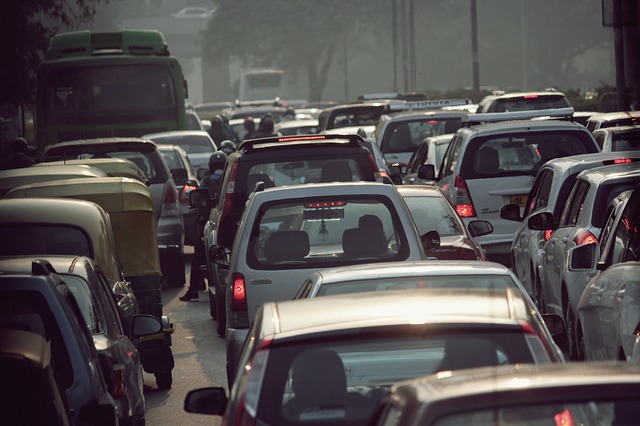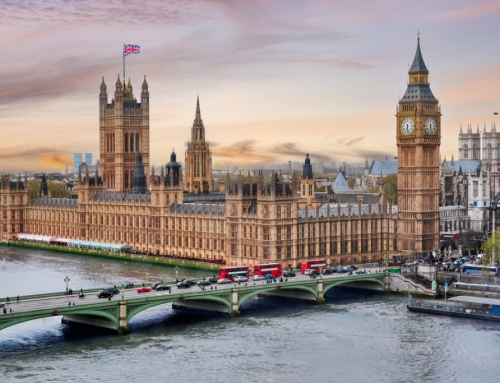
How do you travel to work? Are you someone who’s lucky and has a short walk to work? Or is it a short pleasant cycle/drive/bus or train journey? Or, are you in what seems to be the majority: those who experience commuting hell. Commuting is fine for a minority, but the majority find that no matter what means of transport they take, it’s always hell:
Travel by car? Sit for an hour each day in traffic, crawling every so often, not even having to change gear.
Travel by bus? Stand on an overcrowded bus in traffic for ages, and every time the bus finally starts moving a bit more it stops at yet another bus stop – sometimes literally about 20 metres from the previous bus stop. And you’re always surrounded by fellow passengers who fall into three categories: those who do not wash, those with screaming kids, and those who speak too loudly on their phones.
Travel by train? Stand on the crowded platform where you’ll undoubtedly hear something along the lines of “The 8:02 service to [insert station name] is delayed by approximately [insert time between 5-40 minutes] due to ‘signalling problems’”. And when your train does actually arrive, it’s so crowded you end up standing with precisely zero space around you.
Travel by tube? Constantly having to take the longer route due to your usual route having engineering works again.
Cycle? Perhaps a little too tiring when you have a full working day ahead of you. Or perhaps you’re fed up of rain pounding against your face – it’s fine to cycle on that one day of sunshine, but the other 364 rainy day cycles are really getting your goat.
Walk? Cars driving at the speed of light trying to get to work on time, ignoring the numerous pedestrians who need to cross the road. Also, nearly getting run over every day is getting tiresome for you.
These means of transport may result in commuting hell, but technology advancements mean that one day there will be ways to avoid it. There are many upcoming alternative means of transport:
Flying to Work Via Jetpack
Yes one day you may actually be able to fly to work! A New Zealand firm called ‘Martin Aircraft Company’ is building a one-person jetpack that is due to be released in 2016. Presently it is only set for use by emergency services, but chief executive Peter Coker believes that one day people could be using jetpacks for daily transportation.
Electric Bike-Sharing Scheme
Countries such as Denmark have already rolled this out. The e-bikes have tablet computers with GPS navigation installed between the handlebars – to book and pay for the e-bikes people use their smartphones.
Electric Buses
Wireless charging on electric buses is being trialled: the buses drive onto special platforms to be charged when in the depot.
Car-Ride Sharing
It was found that if people shared cabs in New York City it would remove 40% of cabs, and everyone would still get to their destinations on time. The app-based taxi firm ‘Uber’ has launched its own taxi-sharing scheme ‘UberPool’. Currently this is just a social experiment as taxi sharers would have to decide whether or not to talk to each other – some people may not be so keen on an awkward atmosphere! Many car manufacturers are actually investing in their own car-sharing schemes as they realise that in the future they may actually be selling mobility services instead of cars.
Driverless Cars
Instead of you driving yourself to work every morning, your car could drive you to work every morning! And instead of your car just sitting there pointlessly in the car park for 8 hours, it could give a lift to someone else. The distinction between private and public transport would be blurred, but driverless cars currently still face regulatory, legal and technological challenges.
Integrated Transport Technologies
Someone decides where they want to go – an app will then work out the fastest and cheapest way to get there, giving the user options based on its knowledge about the person, the traffic situation and the weather.
Social Media and Data Analytics
Social Media and Data Analytics are already helping us make better transport choices and manage our transport systems more effectively. For example social media is being used by people to check for news of delays/cancellations from official channels and other users. In Brazil they are using big data analytics to improve Sao Paulo’s bus system. They are analysing 30 million pieces of data produced by 15 thousand GPS-equipped buses and passengers using Sao Paulo’s budget ticket system. The data is then used to produce a digital map that shows real-time passenger numbers, journey times, and which routes are overcrowded/underused.
These new means of transport would provide many benefits for commuters:
• Reduction in traffic – it is predicted that in the future 4 out of 5 cars can be removed from the road
• Reduction in congestion
• Reduction in pollution
• More flexibility for people
All these technological advancements may one day be put in place, but unfortunately for now you will still have to put up with commuting hell. Whilst you wait for more efficient commuting, remember that contractors can offset their travel expenses with ICS. Discuss whether you can claim on your travel, or any of your other expenses, with our team on 0800 195 3750 or talk to us on the chat box.
















